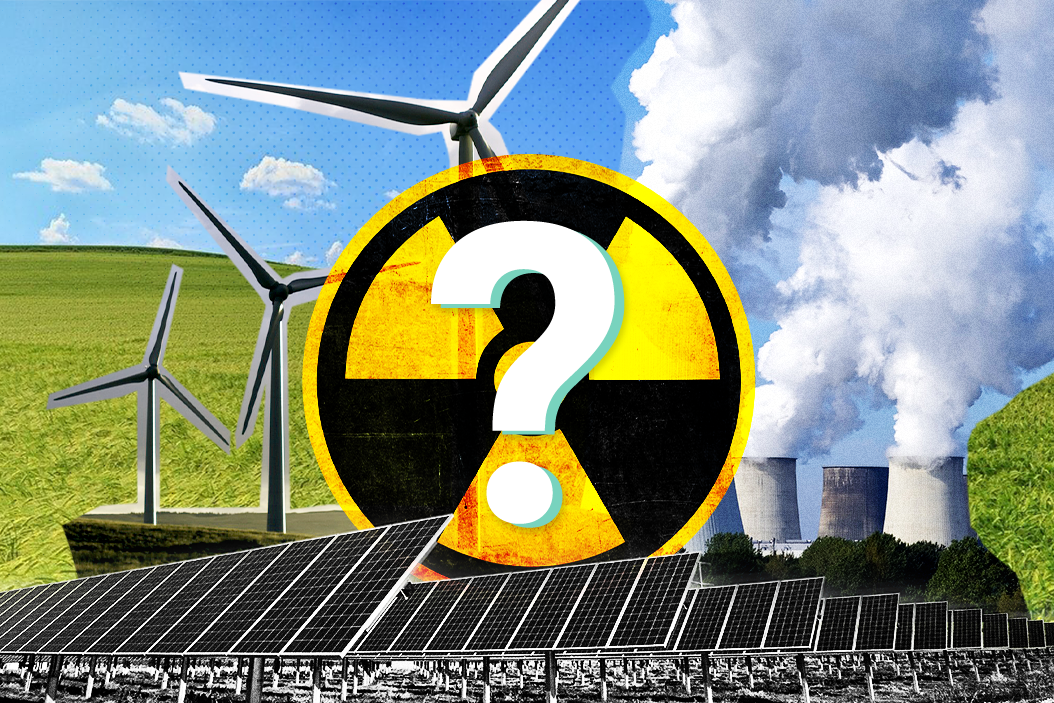Last Friday’s attack by Russian forces on Europe’s largest nuclear power plant triggered outcry over the potential for a Chernobyl-like disaster. The US called it a “war crime,” and the issue was debated in an emergency session of the UN Security Council, where Russia received a global dressing down.
The blaze resulting from artillery use at Zaporizhzhia’s nuclear facility was eventually controlled. But Ukraine’s nuclear regulator told the IAEA on Sunday that it is having problems communicating with staff at the plant, and that a Russian general now controls the facility.
Putin’s next target, according to Shaun Burnie, a senior nuclear specialist with Greenpeace, could be the three reactors at the Yuzhnoukrainsk power plant, which generates 10% of Ukraine’s electricity and is a major energy supplier throughout southern Ukraine. “Loss of cooling function to the reactor cores and spent fuel pools could lead to a disaster far worse even than the [2011] Fukushima Daiichi [disaster],” Burnie warns.
While the war is threatening Ukraine’s nuclear power operations — not to mention impacting world energy supplies and prices — it’s also raising questions about the safe use of nuclear energy. The continent has been accelerating its nuclear power usage — now officially, and controversially, labeled “green” by the European Commission, despite the threat of accidents and radioactive waste.
But the fast-changing security landscape poses a dilemma for European policymakers. How can they fight global warming while balancing their energy needs with this new security threat posed by Vladimir Putin?
“Europe is finally reckoning with the reality that its importing of Russian natural gas helped finance the Putin regime and puts it in grave danger,” says Josh Freed, senior vice president of Third Way, a pro-nuclear energy think tank in Washington, DC.
Nuclear energy has been a highly divisive issue in Europe for decades. Austria voted in the late 1970s not to build nuclear power plants, and after the Chernobyl disaster of 1986, Germany and Italy halted production of new NPPs while Switzerland imposed a 10-year moratorium.
After the 2011 tsunami-triggered disaster at Japan’s Fukushima plant, Chancellor Angela Merkel announced plans to phase out Germany’s use of nuclear energy altogether. Her successor, Olaf Scholz, seemed to have the same idea when he assumed office. But now, with its dependency on Russian gas exposed, Germany is considering a halt to its phase-out plan, even as it scrambles for other options.
Meanwhile, France has been emboldened by the EU’s goals for achieving carbon neutrality by 2050 based on a shift away from fossil fuels and toward cleaner energy, including nuclear. As Europe’s nuclear energy powerhouse (with 56 reactors), France plans to build even more nuclear plants. Energy price hikes and concerns about Europe's dependence on Russian gas have further driven the French and their colleagues in Brussels for more energy sovereignty.
“That shift will only accelerate Europe’s acceptance of using nuclear, and every other clean energy technology, to help countries become more energy sovereign and address climate change,” says Freed. “It's also an acknowledgement that no energy source is entirely without risk.”
And just how risky is nuclear power with a war raging in Europe? According to the World Nuclear Association, there are now 58 reactors under construction around the globe, with two in Ukraine. Meanwhile, 421 are planned and proposed worldwide. Most of the upcoming projects are in China and India — both hostile to each other — but 89 are earmarked for Europe, with the majority in Russia and Eastern Europe.
“The recent attacks on nuclear facilities in Ukraine raise troubling issues about the safety and security of both the operating nuclear fleet around the world and proposals to build new ones, especially in countries located in or close to politically unstable regions,” says Edwin Lyman, director of nuclear power safety at the Union of Concerned Scientists in Washington, DC.
Nuclear plants are designed to withstand certain accidents and external events, but not sustained military assult. For Lyman, Russia’s recent move means “there is a new category of threat that reactor operators and designers need to take more seriously, and that may require additional protective measures to mitigate.”
Many new reactor designs — especially so-called small modular reactors, or SMRs — have even less protection than operating plants, according to Lyman. With smaller, weaker containment mechanisms and fewer backup safety systems to rely on in an emergency, safety systems that these reactors typically have are no match for a military attack.
But politics, not science, is the main concern when it comes to nuclear energy, insists Freed.
“If Putin wants to kill countless people by blowing up a dam, attacking a chemical plant, or launching missiles at a nuclear plant, he could do it. But the fact is, and despite some cable news hysteria, nuclear plants are incredibly safe.”
Unlike in Chernobyl, Freed says the reactors at Zaporizhzhia have three-foot steel and concrete containment domes. The ones that would be built in Europe are designed to withstand a direct impact by a large aircraft or a terrorist attack. And the new reactors under development now, including SMRs, “will be even safer.”
More For You
Are we still talking. #PUPPETREGIME
Most Popular
Think you know what's going on around the world? Here's your chance to prove it.
As expected, the Supreme Court struck down the bulk of Donald Trump's sweeping “Liberation Day” tariffs as illegal … and almost nothing changed.
